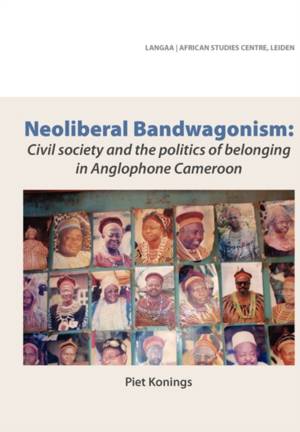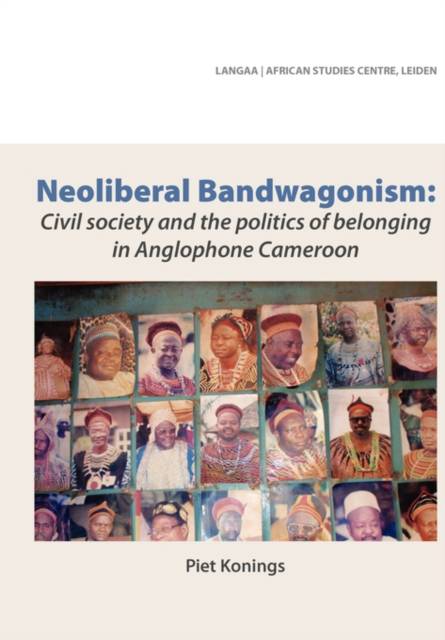
- Afhalen na 1 uur in een winkel met voorraad
- Gratis thuislevering in België vanaf € 30
- Ruim aanbod met 7 miljoen producten
- Afhalen na 1 uur in een winkel met voorraad
- Gratis thuislevering in België vanaf € 30
- Ruim aanbod met 7 miljoen producten
Zoeken
Neoliberal Bandwagonism
Civil society and the politics of belonging in Anglophone Cameroon
Piet Konings
Paperback | Engels
€ 40,95
+ 81 punten
Omschrijving
Civil society and empowerment have become buzz words in neoliberal development discourse. Yet many unanswered questions remain on the actual nature and configuration assumed by civil society in specific contexts. Typically, while neoliberals perceive civil-society organisations as vital intermediary channels for the successful implementation of desired economic and political reforms, they are inclined to blame the current resurgence of the politics of belonging for the poor record of these reforms in Africa and elsewhere. This book rejects such notions and argues that the relationship between civil society and the politics of belonging is more complex in Africa than western donors and scholars are willing to admit. Konings argues that ethno-regional associations and movements are even more significant constituents of civil society in Africa than the conventional civil-society organisations that are often uncritically imposed or endorsed. He convincingly shows how the politics of belonging, so pervasive in Cameroon, and indeed much of Africa, during the current neoliberal economic and political reforms, has tended to penetrate the entire range of associational life. This calls for a critical re-appraisal of prevalent notions and assumptions about civil society in the interest of African reality. Hence the importance of this book!
Specificaties
Betrokkenen
- Auteur(s):
- Uitgeverij:
Inhoud
- Aantal bladzijden:
- 274
- Taal:
- Engels
Eigenschappen
- Productcode (EAN):
- 9789956558230
- Verschijningsdatum:
- 15/10/2009
- Uitvoering:
- Paperback
- Formaat:
- Trade paperback (VS)
- Afmetingen:
- 170 mm x 244 mm
- Gewicht:
- 439 g

Alleen bij Standaard Boekhandel
+ 81 punten op je klantenkaart van Standaard Boekhandel
Beoordelingen
We publiceren alleen reviews die voldoen aan de voorwaarden voor reviews. Bekijk onze voorwaarden voor reviews.











